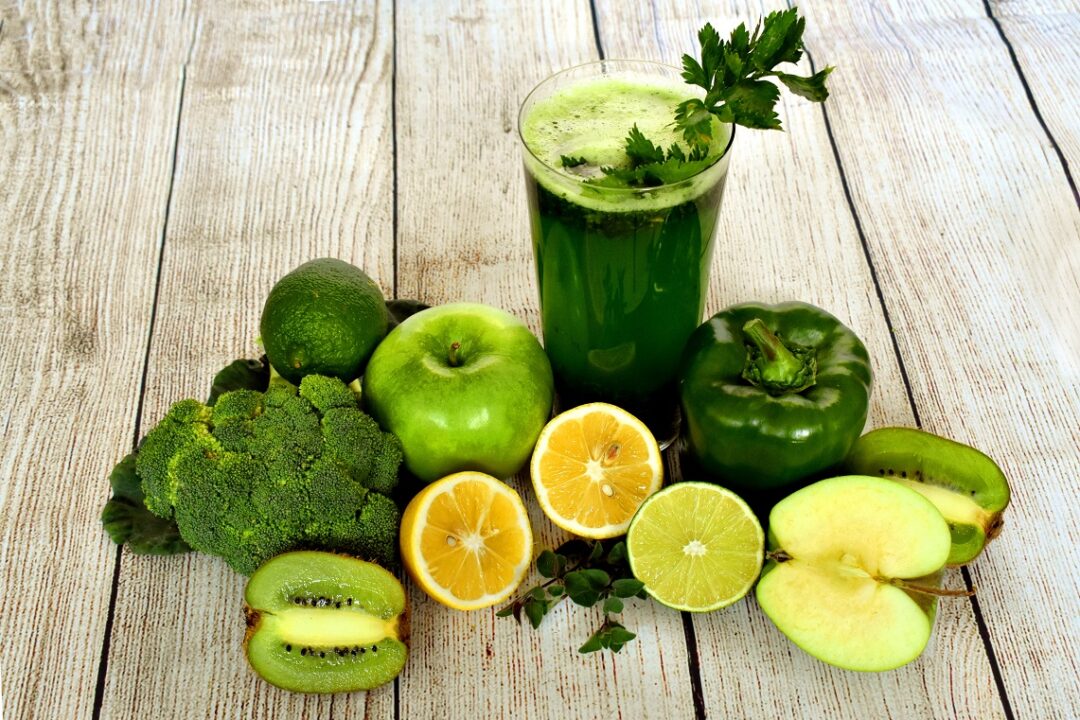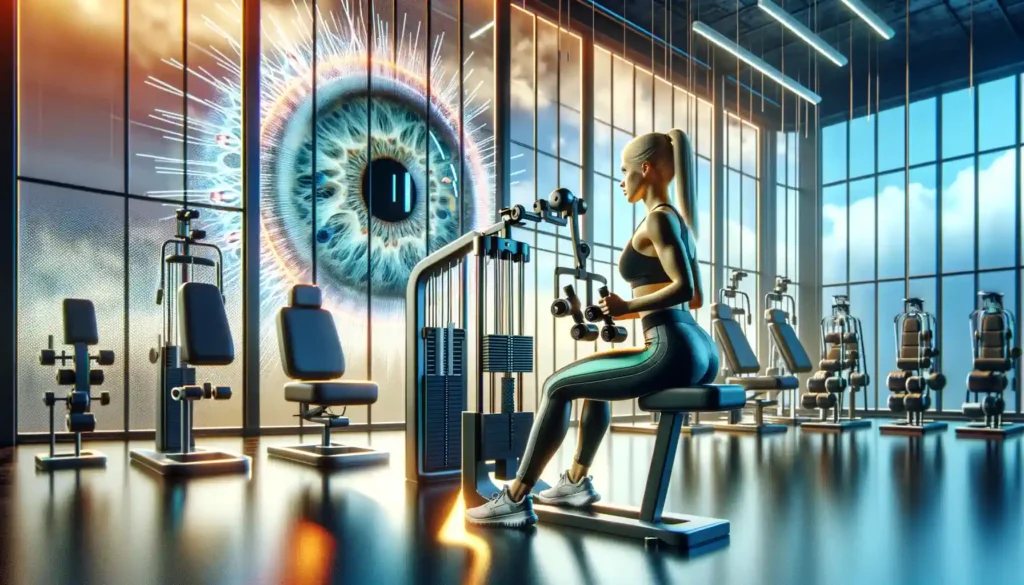Our eyes are one of the most important organs in our body, allowing us to see and perceive the world around us. Our eyes require certain nutrients and vitamins to maintain optimal health and function properly. In this blog article, we’ll explore some of the essential eye vitamins to get better eye health and improve eyesight.

Beneficial Eye vitamins to get better eye health and improve vision
The eyes, like any other organ in the body, need nutrients. For example, scientists advise eating more antioxidant-rich fruits and berries (such as blueberries and strawberries) because, for people who eat a lot of fruits, the risk of age-related macular degeneration is lower than for those who eat few fruits. You should be aware that fried potatoes and other fatty foods contain many free radicals that reduce the body’s ability to retain antioxidants.

Vitamin A for better eye regeneration
Retinol (vitamin A) improves metabolism, and growth processes, increases resistance to organisms to infections, and normalizes vision at dusk. He participates in all types of metabolism (protein, fat, carbohydrate). If in food, there is not enough vitamin A, then the mucous membranes become rough, secretion decreases salivary glands, and teeth take on the appearance of as if covered with chalk.
Vitamin A allows the body to use the iron stores in the liver. Retinol is essential for the retina of the eye. Vitamin A is part of the visual pigment and plays a role in the process of light perception. It is responsible for night vision and corneal moisture. Eye Vitamin A is a strong antioxidant that reduces the risk of developing cataracts and age-related degeneration macula.
Vitamin A deficiency symptoms
Signs of a vitamin A deficiency: slow wound healing, skin rash in the form of nodules and small peeling, premature aging of the skin, weakening of the immune system, and increased susceptibility to diseases (especially colds, respiratory infections pathways, and gastrointestinal tract), impaired twilight vision (night blindness), deterioration in the perception of blue and yellow colors, dry eyes, a feeling of sand in eyes, conjunctivitis, dandruff, hair loss, hypersensitivity tooth enamel, decreased appetite.
Signs of excess vitamin A: drowsiness, headache, facial flushing, nausea, vomiting, loss of tooth sensitivity, and pain in the bones of the legs.
Vitamin E Benefits better eye health and clear vision
-Vitamin E has an antioxidant effect – protects organ cells from oxidative damage;
– it promotes the consumption of oxygen by cells, which is very important for heavy physical exertion, lung diseases, liver, blood, infectious diseases,
– participates in the formation of collagen and elastin fibers, which are included in the walls of blood vessels and the skin. With enough of them, the skin starts to get better, retain moisture, accelerate the healing process, and slow down the aging process of the skin.
-Vitamin E is one of the participants in the formation of hemoglobin, prevents the development of anemia, prevents blood clots;
– normalizes blood pressure due to a pronounced diuretic effect;
– protects other vitamins from oxidation (destruction), promotes the absorption of vitamin A;
– helps to strengthen the immune system;
– improves the nutrition of nerve tissues (brain, nerves),
Vitamin E reduces the risk of cataracts and age-related macular degeneration of the retina and stimulates the formation of intercellular substances and connective tissue fibers. It is very useful for myopia.
How to prevent eye problems with Vitamin E
Vitamin E is responsible for intraocular pressure. Taking it regularly prevents the development of eye tumors.
Vitamin E is not formed in the body. Therefore, for the normal functioning of all organs, it must come from outside. Most of it is found in fresh vegetable oils (from olive, sunflower, cottonseed, corn, and soybean) prepared by cold pressing.
In the body, the supply of this vitamin is large enough. Still, as soon as it starts to deplete, the following symptoms can appear dry skin, muscle weakness, reproductive depression abilities, and impaired accuracy of movements. A lack of vitamin E can lead to a decrease in the amount of magnesium in the body.
Eye vitamin B1 to get better eye health
Normalizes protein, fat, carbohydrate, and mineral metabolism, the function of the nervous system, circulatory and digestive organs, and increases the body’s resistance to infections. Without its presence, muscles begin to accumulate. Lactic acid, which leads to severe fatigue and disruption of the heart.
Without this vitamin, the transmission of nerve impulses in any organ, including the organ of vision. It is necessary for metabolic processes and the production of enzymes that affect intraocular pressure. Lack of vitamin B1 in the body leads to damage to nerve cells and decreased visual acuity.
Vitamin B1 deficiency increases the risk of developing glaucoma. Most of this vitamin is found in dry yeast, bread, peas, cereals, walnuts, peanuts, liver, heart, and eggs. When heated, the vitamin is destroyed, it is better to give preference to fresh vegetables and fruits. But vitamin B1 is poorly absorbed with a lack of magnesium.
Vitamin B2 for eye health
Vitamin B2 Participates in the metabolism of proteins, fats, and carbohydrates, normalizing the nervous system’s function and liver, and improving blood formation. With frequent stress, it is required to consume foods with this vitamin constantly. In addition, its lack provokes a protein-poor diet; a sharp decline in the consumption of milk and dairy products; physical and nervous tension; diseases of the intestines, liver, and pancreas. Vitamin B2 takes part in the formation of hemoglobin and is part of many enzymes involved in redox reactions occurring in the body. Its deficiency causes frequent conjunctivitis, lacrimation, and photophobia.
This vitamin has a beneficial effect on blood vessels, increases the perception of colors, and improves night vision. With a reduced content or absence of vitamin B2 in food, a person experiences eye pain and impaired twilight vision. Vitamin deficiency can provoke inflammatory diseases of the cornea and the development of cataracts. Vitamin B2 plays an important role in maintaining the normal visual function of the eye.
Most of all, vitamin B2 is found in animal products: eggs, meat, liver, kidney, fish, dairy products, cheese, and leafy green vegetables (especially broccoli spinach), and yeast.
Vitamin B6 for better eye recovery
Vitamin b6 is found in animal products: eggs, liver, kidneys, heart, beef, milk, and dairy products. There is also a lot of it in green peppers, cabbage, carrots, melon, honey and nuts, oatmeal, and buckwheat porridge.
Vitamin B12 for eye health
Increases resistance of the body to infections and reduces the deposition of fat in the liver. Lack of vitamin B12 contributes to the disorder of the formation of nerve sheaths, which can gradually lead to a decrease in vision, memory, dizziness, chronic fatigue, and irritability. He also participates in the regulation of daily human activity. Vitamin B12 affects the optic nerve. Eye vitamins to get better eye health: a lot of vitamin B12 in cheese, and seafood (crabs, salmon, fish), somewhat less in meat and poultry. For vitamin B12 to be well absorbed in the stomach, it must interact with calcium.
Vitamin C for eyesight improvement
Vitamin C Regulates the metabolism of proteins, fats, and carbohydrates, the permeability of the capillary walls, increases the body’s resistance to infections and improves kidney and liver function.
Most of all, vitamin C is contained in fresh fruits, vegetables, and herbs. The real storehouses of this vitamin are all citrus fruits, green onions, and carrots.
Vitamin P to reverse myopia naturally
Eye vitamins to get better eye health. Vitamin P is found in many plant foods. Vitamin P, together with vitamin C, normalizes capillary permeability. It raises the sensitivity of the retina to light, prevents fatigue, and affects visual acuity. It is contained in citrus fruits, sweet peppers, and rose hips. In combination with vitamin E, it can stop the development of myopia.
Maintaining good eye health is essential for preserving our vision and overall well-being.
How to get better eye health with Eyesight Academy Course

Are you looking to improve your eye health and vision? Enroll in Eyesight Academy! Our comprehensive course is designed to help you optimize your eye health and visual performance through a combination of relaxation and unique eye exercises.
Our course covers a wide range of topics related to eye health, including:
- The anatomy and function of the eye
- Common eye conditions and how to prevent them
- The role of nutrition and lifestyle in maintaining optimal eye health
- Techniques to reduce eye strain and improve visual acuity
- Strategies for protecting your eyes from digital screen time
Invest in your eye health and sign up for Eyesight Academy today! With our expert guidance and support, you can achieve optimal eye health and enjoy clear vision for years to come.
Vitamins excess harm
Systematic long-term excess of daily dosages of any vitamin is dangerous.
– with the introduction of massive doses of vitamins, protective mechanisms are turned on and directed toward their removal. The more a person drinks them, the less they are absorbed;
– fat-soluble vitamins can accumulate in the body and
may have toxic effects;
– irrational use of large doses of vitamins can change the balance of vitamins,
predisposing to strengthening or provoking hypovitaminosis;
So as a conclusion, we can make. Vitamins are very important for our body, but we need to consume them in the right amount for maximum benefits.
Thanks for watching this video to the end I hope it will help you. Subscribe to Sviaton – YouTube channel and will see you again.

